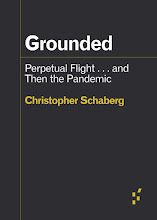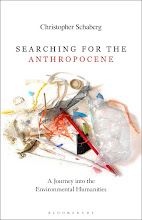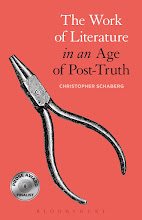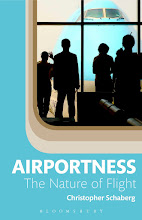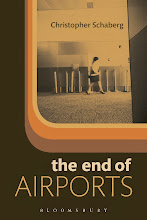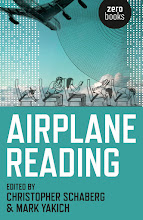What does it mean when people warn others not to "over-interpret" a situation? This usually means that too much thinking can paralyze action, and then things don't get done. This makes sense from a practical standpoint: the more time I spend analyzing a menu at a restaurant, the longer I defer my actual meal. And after too long, I might just be asked to leave.
We sometimes use this language to advise friends about relationships, for instance when we say things like: "Don't over-interpret the fact that she did not call you last night; just go see her and talk to her!" By this sort of phrasing we mean that direct communication and articulated questions are healthier for a relationship than are solipsistic hypotheses and speculative flights of the imagination.
However, when it comes to literary criticism, I do not think that it is possible to "over-interpret." In fact, I would go as far to say that every act of interpretation is inescapably an over-interpretation. When interpreting, one does not simply read a novel and then put it back on the bookshelf (or file it in the e-reading device's archive). Instead, what one does is linger over particular passages, research a peculiar historical material reference, or develop a theory that explains certain aspects of the narrative. In short, any act of interpretation over-does the literary work, and this is precisely the point. (Tangentially, I am very curious about this habit of attaching "over" as a prefix to words that already imply extra action: over-dramatize, over-analyze, even, strangely, over-think. Does this possibly come from a cultural sense of food, from how we say that something cooked too much is overdone? Or is this just another case in point?)
Interpretation is supposed to be enriching, and to add appreciation to art. On the other hand, interpretation can be seen as derivative, and completely external to the work of art. I am aware as I write this that it may seem as though I am relying on and even reinforcing a set of binaries here: life/thought, art/interpretation. These sets of categories are of course fluid and not mutually exclusive. Yet if we can never "over-interpret" art, it seems to make sense that we should also hesitate before telling people not to "over-interpret" situations in everyday life. Rather, to over-interpret might be nothing more and nothing less than to interpret, and given space and time, interpretation might be understood not as a derivative form of life, but as a way of life in which choices must be made, but must equally always be left open to ponder, and in some cases, to redress.
The impetus for this post was that I am in the middle of revising an article on F. Scott Fitzgerald's unfinished novel The Last Tycoon, and it was recently suggested to me that I "over-interpret" passages from the text. This is probably true on a certain level: I like to spend a lot of time on a little bit of text. However, I also want to defend "over-interpretation" as interpretation. I suppose the trick is to make thoughtful interpretation look more like art, and feel more like life.
Sunday, August 30, 2009
Tuesday, August 4, 2009
Nature and Artifice
“The machine which at first blush seems a means of isolating man from the great problems of nature, actually plunges him more deeply into them.”
—Antoine de Saint-Exupéry, Terre des Hommes
Last week I saw two films at the Traverse City Film Festival: "Herb and Dorothy," an excellent documentary about two lovely, understated collectors of minimalist and conceptualist art; and “Examined Life,” a collage of site-specific interviews with contemporary thinkers who discuss subjects ranging from cosmopolitanism to ecology, and from disability studies to revolution. These two films, it seems to me, connect at the intersection of nature and artifice.
After the screening of “Herb and Dorothy,” the director Megumi Sasaki took questions from the audience, and spoke about the importance of one specific scene in the movie that took place in a pet store, in which the main characters look at animals in between their visits to art studios. Sasaki articulated a key point of the film: the convergence of animals, nature, and art.
Animals, nature, and art: what else is there? Species inhabit a planet; and they make things. This triangulation seems at once utterly simple and totally profound. What else is there outside of this amalgam? One might say thought, but thought is part of our species being. Thought is something interesting that we do as humans. Technology, too, is simply saying our technology, the things we make, ideas that often start out as (or in) art, and turn into machines or screens. Finally and inevitably, animals and art both collapse into nature. ‘Nature’ is an all-encompassing term the harder you think about it, which begs the question: why do we need the idea of nature at all?
When Slavoj Zizek insists in “Examined Life” that humans need to become more artificial, more alienated, in order to responsibly reckon with the realities of landfills and recycling dumps, I think what he means is that we have to let go entirely of the idea of nature as if we could grasp it either as a transcendent Other or as some ideal version of ourselves in balance with everything else. We have to accept ourselves as animals of artifice, and artifice as our nature. All this really means is taking what we make and do seriously. In turn, we might be able to actually do something different with waste, with all the remnants of artifice that humans produce. One of my mentors at UC Davis, Timothy Morton, has written at length on this subject in Ecology Without Nature.
These two films align with the urgency of ecological theory—which is to say, the crisis of realization that comes from the awareness that humans can never ever get outside the purview of ‘nature'. This 'nature' is a weird term: it can mean everything, and yet is eerily similar to nothing. Where does this leave us? We are always, only, thoroughly and inescapably, here, in our bodies, in our minds, making and doing things, on this planet, or somewhere nearby. Forgetting about nature, this is the place to start thinking.
The more artificial we become, the more natural we are. This is a difficult thought to think.
Subscribe to:
Posts (Atom)





